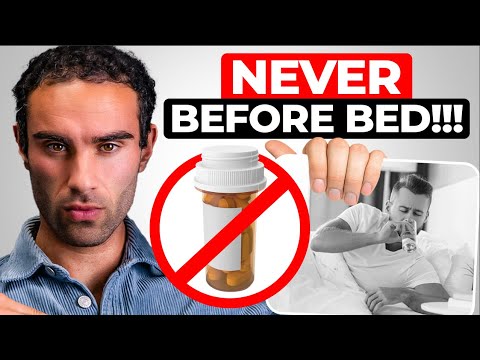I have been trying different doses and time for tryptophan for better sleeping. If I take approx 100mg immediately before going to bed, my deep sleep stage doubles and happens at the beginning of my sleep.
@Walter_Brown, many studies have been done on cognitive behavioral therapy as a treatment for many disorders, including insomnia. It’s effectiveness as a sleep aid is almost indisputable.
@Alex, unfortunately you won’t find anything that knocks you out like mirtazapine except for maybe quetiapine, which is also an anticholinergic. I’d try CBT, which is said to be effective even for chronic insomnia.
And maybe a thousand times more costly. ![]()
For Alex, yes, but not for us geezers.
Actually, most people need no more than seven or eight sessions. May be worth a grand or two.
No. You should not take Glycine and Taurine together. They both utilize the same receptor (along with beta-alanine). Glycine will always monopolize the receptor hence it is named the glycine receptor.
If you take glycine and taurine together, your body will absorb the glycine first and you may waste the taurine that is not absorbed. They should be taken about 4 hours apart for the benefits of both to be fully realized. Beta-alanine will also block taurine but is also blocked by glycine. So taking all 3 together is not a good idea either.
any issue with magnesium glycinate and taurine?
Magnesium glycinate is magnesium plus glycine. So probably the same issue as glycine and taurine.
I have been using Zaleplon as required over the past 10 years or so. It is absolutely great for getting you off to sleep [in < 5 min.], but has a very short half life and I occasionaly need a second 5mg tablet half way through the night. It is a sedative hypnotic like xanax, but I always wake up alert, and can drive with no drowsiness the next day. I’ve had no side effects and just use maybe 100 x 5mg capsules/year.
Here’s an older article:
“Efficacy studies show that zaleplon is a suitable hypnotic for sleep initiation purposes. However, because of its short half-life, zaleplon is less effective in sleep maintenance when compared with other hypnotics. Nevertheless, zaleplon does increase total sleep time. No rebound effects are observed after treatment discontinuation.
The use of zaleplon is relatively safe. Adverse effects are mild and of short duration. No important interactions have been reported, and there is no evidence of abuse potential. Relative to benzodiazepine hypnotics [like Xanex], the biggest advantage of zaleplon is that current evidence suggests it does not produce residual next-day effects. As early as four hours after intake of zaleplon, no effects on cognitive, memory, psychomotor performance, and the ability to drive a car have been reported.”
Is it addictive? And does it make you dependent on it? I know of someone that got addicted to Xanax and it is one of the worst things. Apparently, they self-medicated on it, and didn’t go with doctor’s suggestions.
I don’t find Zaleplon to be addictive other than it’s good to know it’s available, especially useful when I go to bed early because I want or need to get up early. Or when I have some worry going around in my head that won’t stop. Zaleplon is the greatest!
I have just seen this.
I am not sure how true the assertion is about sleeping pills not actually causing sleep. I can see that an SSRI would increase serotonin levels which given that serotonin gets metabolised at times into melatonin would be expected to increase melatonin levels which does increase sleep.
However, I remain of the view that CBT and potentially getting the right magnesium, vitamin D levels etc are the best approach particularly when it comes to getting to sleep.
I use Melatonin to extend sleep beyond what I would get ordinarily. I think it may be the case that mitochondrial damage in the pineal reduces endogenous melatonin creation. Hence if you repair the mitochondria melatonin production improves. The step of converting Serotonin to N-Acetylserotonin requires acetyl-CoA and the step of converting N-Acetylserotonin to Melatonin requires SAMe which itself requires ATP. Hence mitochondrial efficiency will be a thing.
With a bit of luck, therefore, an increase in endogenous melatonin production will extend sleep a further sleep cycle on.
In one of the topics about sleep I posted my experience with Doxepin 3 mg before bed and at least 3 hours after a meal. For me it is useful and fast-acting if used under the tongue. It does have a next day drowsiness effect which may make driving dangerous, especially if I use the upper dose of 6 mg (higher dose not recommended for people over age 65)! I believe the half-life is around 15 hours which is a lot. Coffee can help overcome any next day drowsiness, but maybe not all of it.
Doxepin is not ideal, but it helps and it is essentially free of the anti-cholinergic effects of doxalamine and diphenhydramine at this low level. Here is a fairly decent article about Doxepin that also mentions a few other MAOIs that are used for sleep.
Ahh, OK. That’s convincing. Thank you!
Regarding doxipin and insomnia… Not for everyone, I assure you. I did it for many months, trying to find the sweet spot, and never did.
For me, even as little as 1.5mg, and I’d pay for it the whole next day. It could take up to 20 hours to clear my system and often did.
Less was better. So much less, in fact, that if I take it at all any more, I take no more than about .4mg. Yep, I break that 3mg pill into many pieces. Crumbs. Yes, I can still feel it. Yes, I’ll still be feeling it the next day.
I also found that using it every night decreased its effect in helping me sleep, but did not decrease hangover effects. I got to the point where it just wasn’t worth the degradation to my mood and focus the next day.
YMMV, and probably will.
Sol, your points are well taken. I find the daytime side effects very irritating and I may put doxepin aside and return to 25 mg diphenhydramine before bed which has fewer daytime side effects. My trial of doxepin 3 mg is an attempt to move away from the strong nighttime anti-cholinergic effects of benadryl which are associated long-term with dementia and short-term with aggravation of BPH symptoms. I’ve generally avoided the “standard” prescription sleep aids like Ambien assuming that they would likely become too addictive, but I’m still open to that possible route if I can’t find a better solution.
@Alex, I hate playing doctor, but you can do the research on Flexeril, which may be an effective substitute for mirtazapine. I got a prescription for it’s primary purpose as a muscle relaxant that also helps with nerve pain. It knocks me out for 9-10 hours. The shipping is more expensive than the meds. May be worth a try.
Here is something we might want to pay attention to. The YouTube video makes the case for why it is not a good supplement to take before bedtime. He points out that vitamin D is something we naturally acquire during daylight hours and is a hormone that might interfere with normal melatonin production.
I have been taking vitamin D3 in the evening after supper. He has convinced me that I should take it with my first daytime meal.
Do you feel this is adddicitve? have you tried skipping it, and if so - how was your sleep?
Totally agree, see below.
Does anyone else have input on other supps that are like this and people should know that about?
Anyone have a perspective on when to take different K2 vitamins in this context if they D should be taken earlier in the day? (And in the context of generally taken a bit of calcium in the evening, as it marginally can help with sleep, or should that be paired timing wise with the Vit D?)

